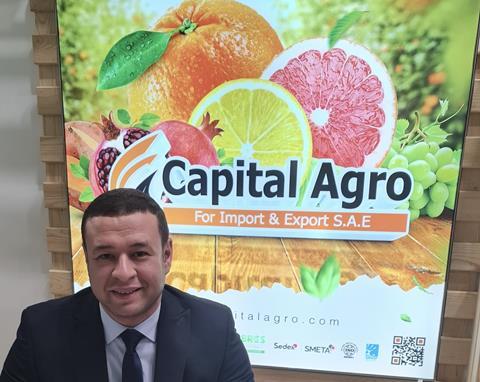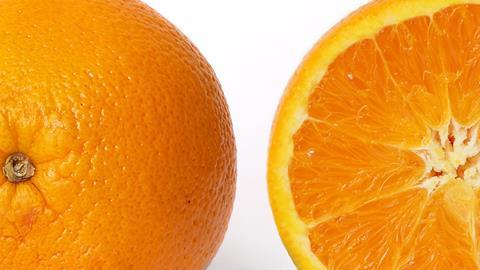Production issues in Morocco have sent European citrus buyers Egypt’s way, according to Ahmed Ghazy, export manager at Capital Agro for Import and Export, with EU imports of Egyptian oranges soaring in 2022/23
Egypt has been the top exporter of oranges for the last few years now, and imports by EU countries have soared recently due to the impact of the weather on production elsewhere. Can you give us some more detail?
Ahmed Ghazy: According to the Enhanced Monitoring on EU Citrus Imports report published by the Ministry of Agriculture, in the 2022/23 season the EU’s orange imports rose by 22.4 per cent, with a total of 613,597 tonnes imported from September to April. South Africa led the suppliers, contributing 46.5 per cent of the total. Notably, Egypt provided 39.4 per cent of the total, marking a 40.3 per cent increase from the average, thereby enhancing its market share by 9 points.

Spanish imports of Egyptian oranges soared from 250 tonnes to nearly 60,000 tonnes this season. This boost was attributed to adverse weather conditions affecting competitors in Spain, South Africa and Morocco, leading to increased demand for Egypt’s high-quality citrus. Also climatic disruptions were reflected in the abundance of small sizes, with other origins much more affected.
Is availability of larger sizes likely to be an issue for the next season as well?
AG: We expect that next season will be better in terms of availability of the big sizes that we faced shortages of last season. By reducing the density of fruit per tree as early as April, we will have a lot more large-sized fruit even in extreme temperatures.
For us as Capital Agro for Import & Export, we plan to double our exporting quantity to reach 30,000 tonnes for next season.
Egyptian exporters evidently benefited from the weather last season. But how much is down to the efforts of Egyptian companies to improve quality?
AG: The success of the agricultural operations was in tandem with significant progress in packaging quality, logistics and the modernisation of packhouses. All these natural factors and the performance of producers and exporters enabled Egypt to achieve an all-time high season, both in terms of volumes and revenues.
Egypt is now the world’s leading fresh citrus exporter, increasing by 21 per cent in 2023, and reaching 1.7m tonnes at a value of US$985m. Oranges dominate, making up 85 per cent of total citrus exports. Growers prefer to cultivate oranges over other fruit types due to their high export demand and value, as well as an established supply chain.
Egypt’s total planted area for oranges is 172,200ha, up 4.5 per cent from the previous year. But the increase in production was mainly down to optimal weather conditions and temperatures during the flowering of the trees, which increased the fruit set.




